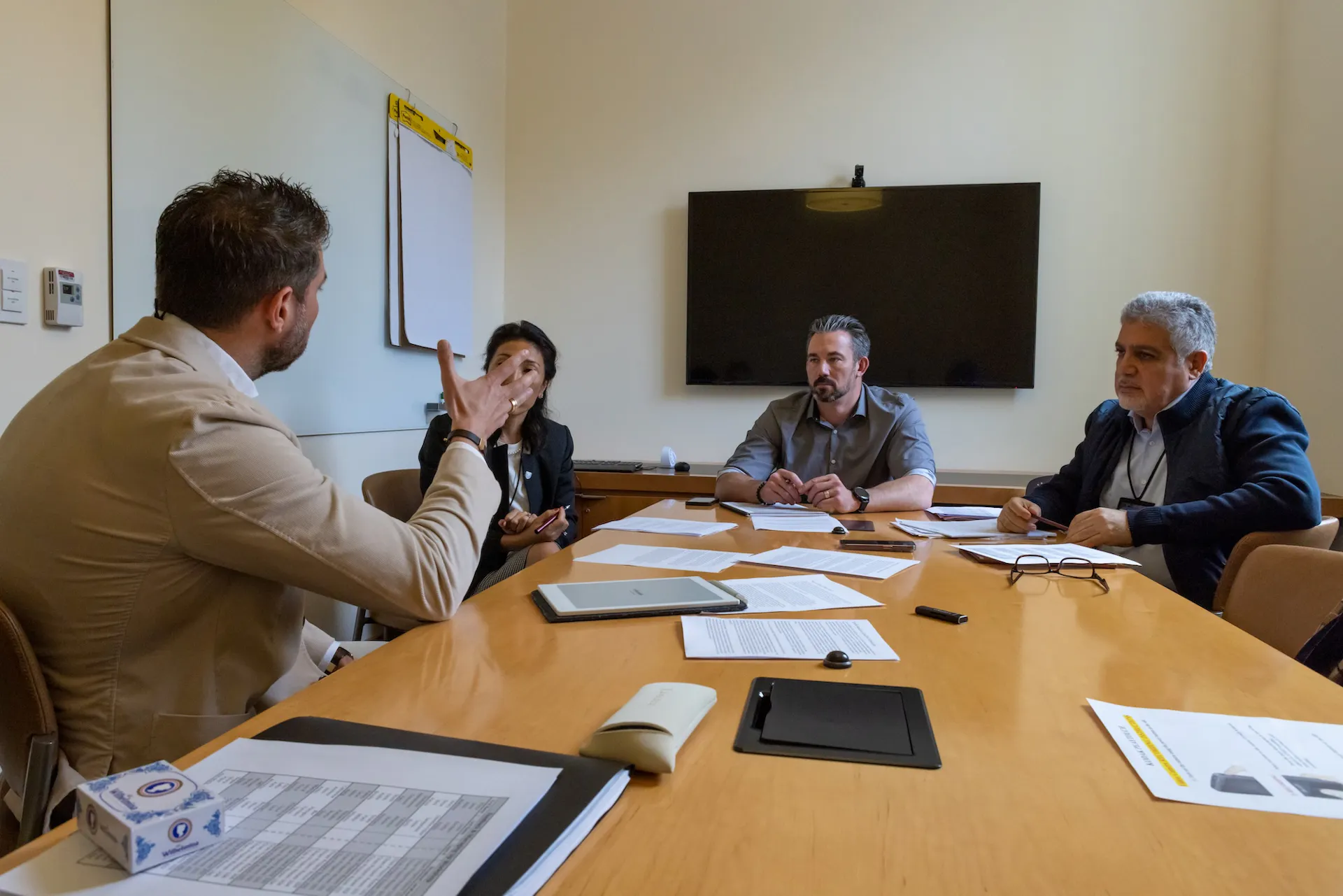
Close
result
VIEWPOINT
Beyond project management
Beyond project management
Jennifer Simonson-Braun
4 min read

Hiring managers and principals will often put project management near the top of their wish list of skills in a new chief of staff. But what they usually need is something more: the leadership, governance, communications, and stewardship skills that come with programme management experience. Jennifer Simonson-Braun explains why.
In my early years as a Chief of Staff, I approached the role like a battlefield general—meticulously managing individual projects and ensuring they adhered to their scope, budget, and timeline. It was something that demanded attention to detail, and I took pride in it. However, as the web of interdependencies between projects grew denser, I realised that a higher vantage point was needed to navigate the evolving complexities of modern organisations.
This recognition came as I had oversight of three major initiatives that were under way concurrently. Initially, I tackled these initiatives using a conventional project management approach, where each initiative operated independently, with its own plans and budgets. That meant, in practice, that each initiative pursued its objectives in isolation, often without considering the broader organisational context.
In other words, we were operating in siloes, which hindered our ability to efficiently allocate resources, identify overlaps in efforts, and manage risks holistically.
Most projects are designed within a broadly linear framework, with a clear beginning, middle, and end, and a set of specific deliverables mapped to deadlines and timeframes. Team members are often seconded from their usual jobs to ensure an intense focus on the project, and for the sake of effectiveness they operate in their own little bubbles, skipping meetings and even social occasions with people outside the project team.
When you’re in a project team, the clear objectives and deadlines seem simple. When you’re managing three different projects, as I was, you experience them as a rising tide of complexity. I needed to change my mindset from one of project management to programme management.
In other words, we were operating in siloes, which hindered our ability to efficiently allocate resources, identify overlaps in efforts, and manage risks holistically.
The difference between project and programme management is more than a step up in seniority and an increase in volume of responsibilities. It requires a broad perspective and a long-term view, able to take in what is going on in the different projects at the same time, but also to anticipate the impacts of each on the others, and how all contribute to the strategic objectives of the programme as a whole. It entails learning to be uncomfortable with uncertainty, shifting priorities while all the time keeping your eye on the long-term prize.
For me, embracing programme management was akin to illuminating a path through the forest of complexity. Suddenly, I had a unified framework that allowed me to oversee the initiatives comprehensively. The framework provided the visibility and alignment of goals I desperately needed. I could now clearly see how the different projects were interconnected, and it became evident where optimisation opportunities lay. The newfound clarity was, without a doubt, my ‘ah-ha’ moment that guided the transition.
With this new lens, I could then be collaborating closely with leadership to align portfolios. Redundant efforts were stripped away, and the hidden potential of synergies was unlocked. Pipelines became smoother, bottlenecks were cleared, and we transitioned from mere coordination to true integration.
This was a profound shift from fragmented efforts to a cohesive and interconnected strategy.
Programme management provided the structure and perspective I needed to enhance coordination, optimise resources, and manage risks more effectively across our concurrent initiatives.
This strategic shift ultimately led to improved efficiency and integration within our organisation's portfolio of projects, reinforcing the value of programme management in achieving the overarching goals while keeping complexity squarely in my sights.
Programme management catalysed a transformative shift in resource allocation. Instead of grappling with resource imbalances and inefficiencies, I could allocate our resources effectively across the initiatives. Cross-training team members and sharing resources emerged as practical strategies that not only saved costs but also maximised the utilisation of a talented workforce.
Programme management provided the structure and perspective I needed to enhance coordination, optimise resources, and manage risks more effectively across our concurrent initiatives.
Furthermore, the programme management approach reformed risk management practices. Instead of each project independently managing risks, I could address potential risks that had the potential to impact multiple initiatives cohesively, as well as hidden risks within individual projects that programme management brought to light. This proactive approach to risk mitigation drastically reduced vulnerability to unforeseen challenges amidst the ever-growing complexity of our operating environment.
Our organisation is by no means alone in its complexity. Most organisations today resemble intricate tapestries, with threads of projects interwoven to create a larger, more complex picture. Chiefs of staff cannot afford to see initiatives as isolated entities. In this interconnected age, success hinges on reinforcing enterprise-wide goals and complementing each other. In my case, the rigid silos needed to be dismantled, resources required dynamic balancing based on need, and risks and issues had to be spotted and mitigated holistically across projects.
So, I advocate for all senior leaders, especially those in senior or executive chief of staff roles, to embrace this mindset shift: it really is about seeing the forest, not just the trees. Stop worrying about projects alone and learn to incorporate programme management. Only you have the perspective and the skills to fluidly optimise the outcomes, navigate the ambiguity, and all the while ensure that the organisation's goals - not the individual goals - remain at the forefront of decision-making.

Author Bio
Jennifer Simonson-Braun
Jennifer Simonson-Braun is a seasoned leader with over 15+ years of experience in C-suite advisory roles, complemented by 25+ years in general management and operations. Her leadership has been instrumental in driving sustainable growth, ethical expansion, and value creation. Jennifer’s commitment to ESG is evidenced by her academic achievements, including advanced degrees from the University of Liverpool and her status as a Certified Chief of Staff and Certified Mediator.
A mentor to MBA candidates at the University of Liverpool and a recently appointed leadership instructor at ILTEXAS Aggieland, Jennifer leverages her expertise in programme management, strategy, operations, law, and finance. Her adherence to ESG principles ensures compliance and a lasting, positive impact on organisations across various sectors and industries.








